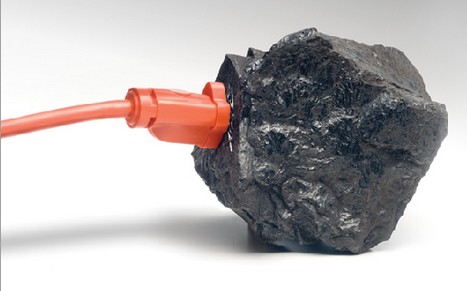As climate change becomes more salient in political and social discourse, proponents of renewable energies have decried conventional energy sources, like petroleum and coal, as dirty power that needs to be eliminated in order to mitigate climate change and promote sustainable living. A low-carbon world is seen to be the solution for our heavy-handed treatment of the global environment.
As a response, support for renewable energies, such as wind and solar power, have increased drastically in the last decade. Exploiting renewable energies rather than relying on petroleum and coal resources is seen as the path to a low carbon-world.
Despite the rapidly improving technology, renewable energies are difficult to work within a traditional power grid and as such, the transition to a renewable energy world is fraught with obstacles.
However, research has come out in the last year that may provide a bridge of sorts between renewable and non-renewable energy sources.
CCS would allow the world to continue using one of its most abundant fuel sources while still reducing our environmental impact.
Despite its reputation as a relic of the energy industry, coal still produces approximately 40% of the world’s energy. Coal is historically one of the dirtiest forms of energy, containing sooty particulates, sulfur and nitrogen compounds, inand traces of mercury and other toxic metals. Coal plants have become cleaner over time, but still produce high amounts of fossil fuels.
Global dependence on coal is one of the main contributors to fossil fuels, and consequently, climate change. However, it is still the cheapest form of energy in many regions, including India and China, whose energy demand is expected to skyrocket in the coming decade.
So how do we promote clean energy while we are still dependent on dirty coal?
The answer is to make the coal clean. There have been recent ventures to develop a technology known as CCS- Carbon Capture and Storage. If CCS works, then industries and companies can continue to burn as much coal as they did before, but remove all the pollutants first. The process of scrubbing out ash and soot has been fairly standard practice at coal plants, but CCS necessitates the separation of carbon dioxide, which is then pumped underground where it can be stored for thousands of years.

Widespread application of CCS could be a game-changer in energy stability and security; it would allow the world to continue using one of its most abundant fuel sources while still reducing our environmental impact.
However, while the concept of CCS is relatively simple, the widespread deployment of reliable, large-scale CCS plants is a quagmire of competing interests and varied stakeholders. The biggest hurdle is the cost- the construction of CCS plants is incredibly expensive. It is not well-known technology and as such, public engagement with CCS has been low. Some environmental groups have actually been lobbying against the technology, despite its relative cleanliness, claiming that it could be developed only at the expense of renewables like wind and solar.
CCS should not be the endgame of clean and sustainable energy. Solar, wind, and other renewable energy sources are cleaner and more sustainable, and global governments and corporations should continue to encourage research and development in these industries. Nevertheless, CCS is a technology that can allow us to continue using our most reliable energy source in a less harmful way while we continue to explore the transition to the cleanest energy. Despite its cost, CCS is the best way to make our current energy sources cleaner, especially in the face of rising energy demand in Asia.




